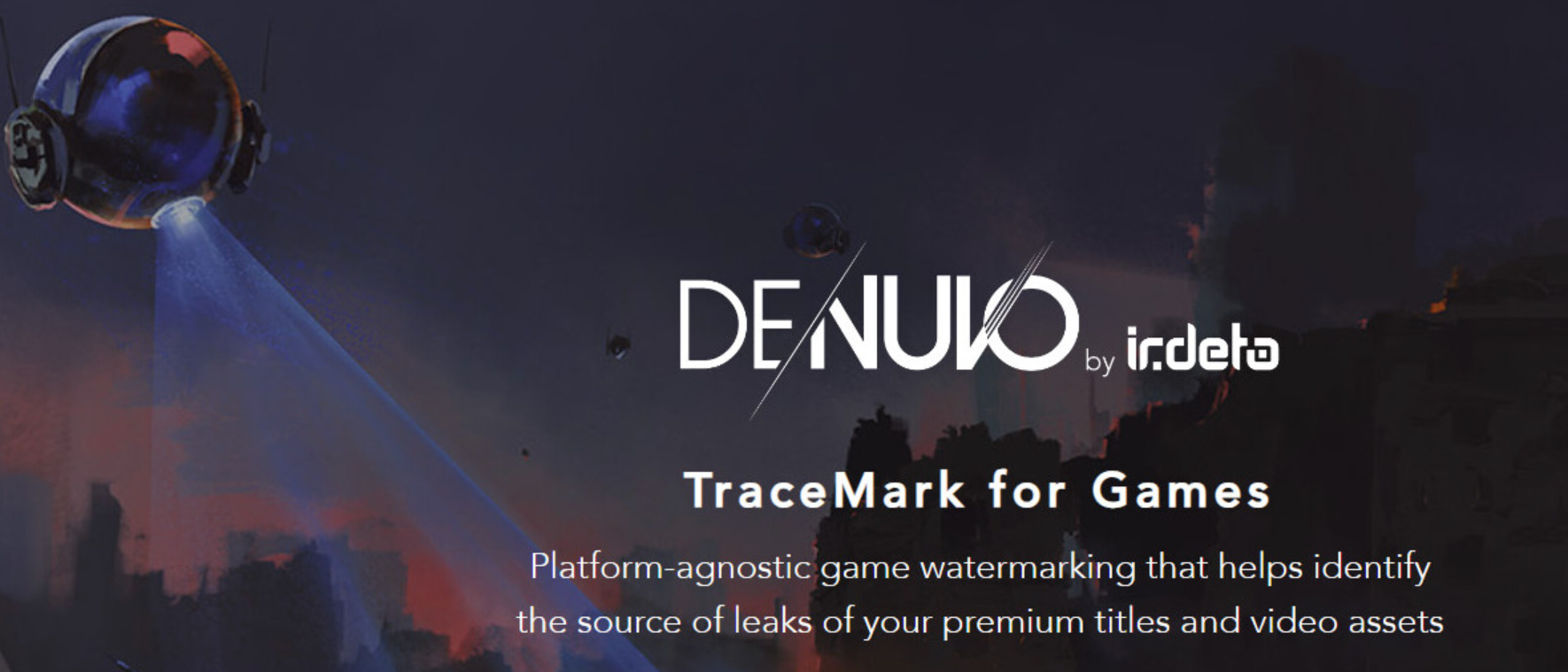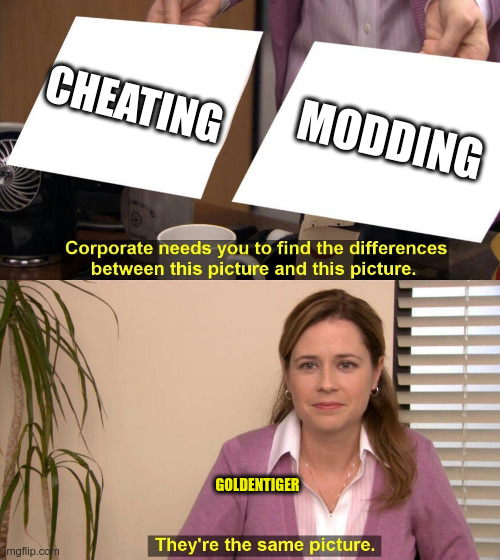erek
[H]F Junkie
- Joined
- Dec 19, 2005
- Messages
- 10,900
Still here, just like Rambus and SCO
"The technology can incorporate both invisible and visible watermarking techniques. This dual approach allows for the embedding of undetectable identifiers directly into the game's content, ensuring that the original quality of the game remains intact. The ease of integration into existing development workflows makes this an attractive feature for game developers looking to secure their content without compromising on the player's experience.
A standout feature of TraceMark is its self-service detection portal, designed to empower developers and content owners with the ability to independently verify the presence of watermarks in their content. The detection is possible even when subjected to robustness attacks such as changes in luminance, blurring, compression and cropping. The watermarking technology can also be integrated with Denuvo's Anti-tamper product, making it a one click solution that will discourage content and game leaks.
Robust security across all stages
For game studios conducting playtests and closed beta tests, TraceMark significantly enhances security measures in the environment around game development. It enables precise tracing and authentication of individual users participating in these tests, providing developers with the ability to confidently trace any leaks back to their source. The solution can be used together with the Denuvo Anti-Piracy product (Anti-Tamper), to control distribution of pre-release content. This level of control is crucial during the sensitive phases of game development.
Finally, the technology addresses the unique security concerns associated with press events and the distribution of review copies. By marking review copies and press screeners with either visible or invisible watermarks, game developers can add an extra layer of security. This ensures that if any content is prematurely leaked before the stipulated review embargo periods, it can be accurately tracked back to the source, thereby maintaining the integrity of the game's official release.
"With the launch of TraceMark for Gaming, we are setting a new standard in anti-piracy for the gaming industry. This innovative solution not only marks a significant milestone for Irdeto but also represents a leap forward in protecting the creative and financial investments of game developers worldwide. At Irdeto, we understand the unique challenges faced by the gaming community, and TraceMark is our commitment to ensuring that these valuable assets are safeguarded throughout their lifecycle. We are excited to see the positive impact this will have on the industry," said Niels Haverkorn, SVP of New Markets, Irdeto."

Source: https://www.techpowerup.com/320692/denuvo-irdeto-tracemark-for-gaming-introduced-at-gdc-2024
"The technology can incorporate both invisible and visible watermarking techniques. This dual approach allows for the embedding of undetectable identifiers directly into the game's content, ensuring that the original quality of the game remains intact. The ease of integration into existing development workflows makes this an attractive feature for game developers looking to secure their content without compromising on the player's experience.
A standout feature of TraceMark is its self-service detection portal, designed to empower developers and content owners with the ability to independently verify the presence of watermarks in their content. The detection is possible even when subjected to robustness attacks such as changes in luminance, blurring, compression and cropping. The watermarking technology can also be integrated with Denuvo's Anti-tamper product, making it a one click solution that will discourage content and game leaks.
Robust security across all stages
For game studios conducting playtests and closed beta tests, TraceMark significantly enhances security measures in the environment around game development. It enables precise tracing and authentication of individual users participating in these tests, providing developers with the ability to confidently trace any leaks back to their source. The solution can be used together with the Denuvo Anti-Piracy product (Anti-Tamper), to control distribution of pre-release content. This level of control is crucial during the sensitive phases of game development.
Finally, the technology addresses the unique security concerns associated with press events and the distribution of review copies. By marking review copies and press screeners with either visible or invisible watermarks, game developers can add an extra layer of security. This ensures that if any content is prematurely leaked before the stipulated review embargo periods, it can be accurately tracked back to the source, thereby maintaining the integrity of the game's official release.
"With the launch of TraceMark for Gaming, we are setting a new standard in anti-piracy for the gaming industry. This innovative solution not only marks a significant milestone for Irdeto but also represents a leap forward in protecting the creative and financial investments of game developers worldwide. At Irdeto, we understand the unique challenges faced by the gaming community, and TraceMark is our commitment to ensuring that these valuable assets are safeguarded throughout their lifecycle. We are excited to see the positive impact this will have on the industry," said Niels Haverkorn, SVP of New Markets, Irdeto."

Source: https://www.techpowerup.com/320692/denuvo-irdeto-tracemark-for-gaming-introduced-at-gdc-2024
![[H]ard|Forum](/styles/hardforum/xenforo/logo_dark.png)



